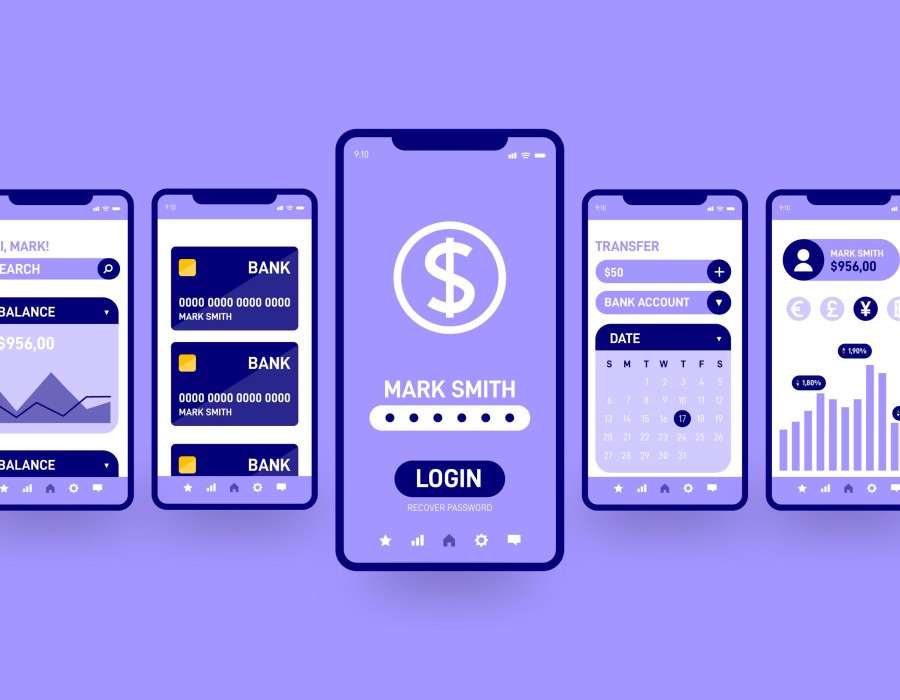The financial landscape is undergoing a revolutionary transformation, with fintech applications at the forefront of this evolution. These innovative solutions leverage technology to streamline financial processes, enhance user experiences, and democratize access to financial services. In this blog post, we'll delve into the world of fintech application, examining their impact, key features, and the diverse array of offerings shaping the financial industry.
The Fintech Revolution: Transforming Finance Digitally
The term "fintech" encompasses a wide spectrum of financial technologies designed to simplify, enhance, and revolutionize traditional banking and financial services. fintech application leverage cutting-edge technologies such as artificial intelligence, blockchain, and data analytics to address the evolving needs of consumers and businesses alike.
Key Features of fintech application
Mobile Banking Apps:
Fintech has ushered in a new era of banking convenience with feature-rich mobile banking apps. These apps provide users with secure and convenient access to their accounts, allowing them to check balances, transfer funds, and even manage investments from the palm of their hand.
Digital Wallets:
Digital wallets have become a staple in the fintech landscape, offering users a secure and efficient way to make payments, both online and in-store. With features like contactless payments and integration with loyalty programs, digital wallets enhance the overall transaction experience.
Peer-to-Peer Lending Platforms:
fintech applications have disrupted traditional lending models through peer-to-peer lending platforms. These platforms connect borrowers directly with lenders, providing a streamlined and often more accessible alternative to traditional banking loans.
Robo-Advisors:
Robo-advisors leverage algorithms and artificial intelligence to offer automated and personalized investment advice. These platforms analyze user preferences, risk tolerance, and market trends to provide tailored investment strategies, making wealth management more accessible to a broader audience.
Blockchain and Cryptocurrency Services:
Fintech has played a pivotal role in popularizing blockchain technology and cryptocurrencies. Blockchain ensures secure and transparent transactions, while fintech-driven cryptocurrency platforms enable users to buy, sell, and trade digital assets seamlessly.
Impact on Financial Inclusion
One of the most significant contributions of fintech applications is their role in promoting financial inclusion. By leveraging technology to overcome geographical and logistical barriers, fintech makes financial services accessible to underserved populations. Mobile banking, digital payments, and microfinance solutions empower individuals who were previously excluded from traditional banking systems.
fintech application Empowering Businesses
Fintech isn't just transforming the consumer experience; it's also revolutionizing the way businesses manage their finances. fintech application designed for businesses include:
Invoice Financing Platforms:
Fintech platforms that specialize in invoice financing provide businesses with quick access to working capital by allowing them to sell their outstanding invoices at a discount.
Expense Management Tools:
Fintech-driven expense management tools automate the tracking and reconciliation of business expenses, streamlining financial workflows for organizations of all sizes.
Digital Accounting Software:
Cloud-based accounting solutions enhance accuracy and efficiency in financial record-keeping for businesses. These platforms often integrate seamlessly with other fintech tools to provide a comprehensive financial management experience.
Challenges and Considerations in Fintech Adoption
While fintech application offer immense potential, their adoption is not without challenges. Security concerns, regulatory compliance, and the need for interoperability with existing systems are factors that businesses and consumers must carefully navigate. Additionally, ensuring that fintech solutions cater to diverse user demographics and maintain a user-friendly interface is crucial for widespread acceptance.
The Future of Fintech Application
The fintech revolution shows no signs of slowing down, and the future promises even more innovative solutions. As technologies like artificial intelligence, blockchain, and the Internet of Things continue to advance, fintech applications will likely evolve to offer increasingly sophisticated and tailored financial services.
Conclusion: Paving the Way for Financial Evolution
Fintech applications stand as the architects of a financial revolution, reshaping the way individuals and businesses interact with money. From mobile banking apps that fit into our daily lives to blockchain technologies redefining the nature of transactions, fintech is paving the way for a more inclusive, efficient, and interconnected financial ecosystem. As we navigate this era of financial evolution, embracing the possibilities presented by fintech application is not just a choice; it's a strategic decision to be part of the future of finance.
Lastly, if you are an owner of an app and want to list it at the top of our website, you can visit Mobileappdaily.





Comments